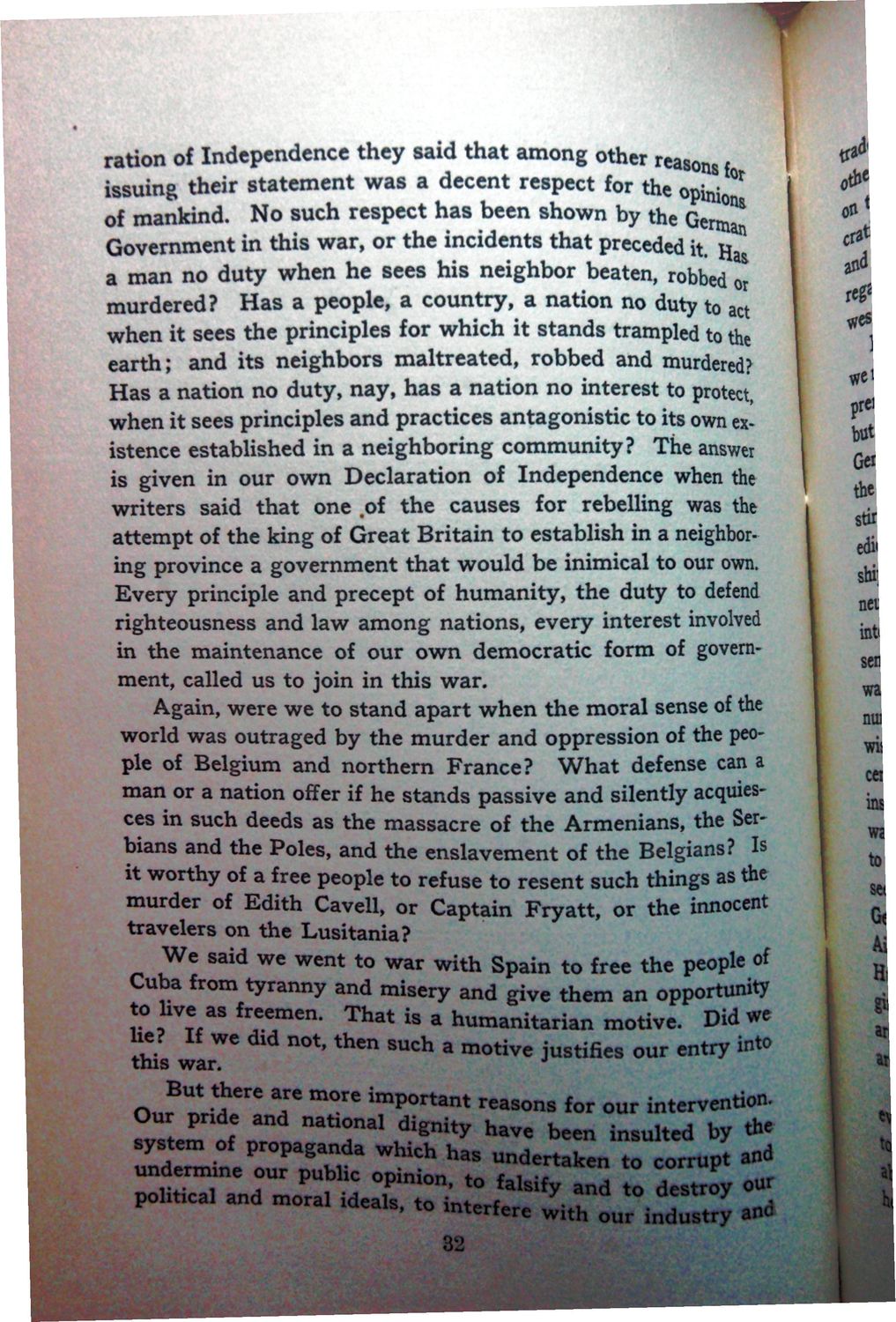| |
| |
Caption: War Publications - WWI Compilation 1923 - Article 25
This is a reduced-resolution page image for fast online browsing.

EXTRACTED TEXT FROM PAGE:
ration of Independence they said that among other reasons f issuing their statement was a decent respect for the opinio^ of mankind. No such respect has been shown by the Germ^ Government in this war, or the incidents that preceded it. Ha a man no duty when he sees his neighbor beaten, robbed or murdered ? Has a people, a country, a nation no duty to act when it sees the principles for which it stands trampled to the earth; and its neighbors maltreated, robbed and murdered? Has a nation no duty, nay, has a nation no interest to protect, when it sees principles and practices antagonistic to its own existence established in a neighboring community ? The answer is given in our own Declaration of Independence when the writers said that one .of the causes for rebelling was the attempt of the king of Great Britain to establish in a neighboring province a government that would be inimical to our own. Every principle and precept of humanity, the duty to defend righteousness and law among nations, every interest involved in the maintenance of our own democratic form of government, called us to join in this war. Again, were we to stand apart when the moral sense of the world was outraged by the murder and oppression of the people of Belgium and northern France? What defense can a man or a nation offer if he stands passive and silently acquiesces in such deeds as the massacre of the Armenians, the Serbians and the Poles, and the enslavement of the Belgians? Is it worthy of a free people to refuse to resent such things as the murder of Edith Cavell, or Captain Fryatt, or the innocent travelers on the Lusitania? We said we went to war with Spain to free the people of Cuba from tyranny and misery and give them an opportunity to hve as freemen. That is a humanitarian motive. Did we he? If we did not, then such a motive # justifies our entry into this war. 0«f^f! T ° P° «*>ns for our intervention. na, al digni,y have b ZZ1 J „ T « « -suited by the P r P a g a d a Which a underpin, ° " " * undertaken ,„ corrupt and undermme our pubhc opinion, t o f a l s i f / oU1 political and moral ideals to i««.«,r . ae5.nu/ t 0 lnter ais, fere with our industry and 32 m t e im rtant r
| |